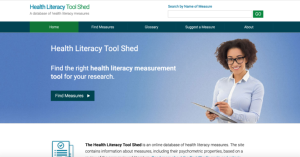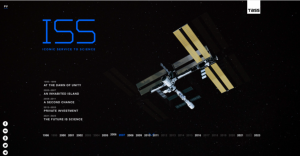Theme: Health Literacy
Back to Top
|
 |
|
Journal of Public Health Research
|
Science |
|
The Journal of Public Health Research's open-access platform disseminates public health scholarship on traditional fields (for example, "hygiene, epidemiology, and occupational health,") and emerging aspects of health care (such as "eHealth and mHealth philosophy, health technology assessment, and genetics research implications,"). The journal focuses on "improv[ing] efficacy, effectiveness and efficiency of public health interventions to improve health outcomes of populations." With this mission in mind, content spans a breadth of disciplines and locations. For example, Volume 9, Number 3 (released Summer 2020) includes articles on the role of dental photography (based on a study in Saudi Arabia) and the impact of vegetable intake on weight control (based on a research study in Indonesia). Readers also have access to past issues under the Archives tab, which catalogs all issues from 2012 to present. PAGEPress, an open-access publisher based in Pavia, Italy, publishes the journal, and Nadia Moscato leads its production as senior editor. [EMB] |
|





|
|
 |
|
World Health Organization: Health Literacy
|
Health |
|
Medical jargon often creates barriers to making informed healthcare decisions. In fact, "according to the European Health Literacy Survey, 47.6 percent of the adult population in 8 countries of WHO European Region have poor or inadequate levels of health literacy." This health literacy resource hub from the World Health Organization (WHO)'s Regional Office for Europe provides several tools to "empow[er] people to make positive choices." The box on the left side of the screen allows readers to navigate the many provided materials, including: News, Events, Health literacy in Action, Resources, and Multimedia. The Resources page is incredibly insightful, as it gathers presentations, publications, data, and toolkits to address health literacy disparities. For additional reading and resources, check out the Partners page. Here, visitors will find links to several of WHO's regional and global partners, each with their own unique projects and materials. Health literacy is one of dozens of health topics included on WHO's website. Readers may also want to explore other sections like Health Services Delivery and Health Systems Governance (both found under the website's Health Topics tab). [EMB] |
|





|
|
 |
|
 |
|
 |
|
Health Literacy Tool Shed
|
Health |
|
Health literacy is broadly defined as "the degree to which individuals have the capacity to obtain, process, and understand basic health information and services needed to make appropriate health decisions." But just how is this degree measured? The Health Literacy Tool Shed provides information on various "health literacy measurement tools," and helps users find appropriate resources to meet their needs. Before diving into the database, readers may want to look over the Glossary page, which explains the terminology used throughout the site. Then, visitors can browse the more than 100 measures on the Find Measures page. Users may also opt to apply filters, including: "health literacy domain measured" and "approximate administration time in validation study." Clicking on a measure reveals a pop-up screen that summarizes its characteristics and psychometric properties, as well as a link to view in-depth information about the measure. While most measures are free, readers should note that the site does not "exclude tools on the basis of accessibility, so some tools may require payment or author permission." The Suggest a Measure tab at the top of the page also welcomes readers' suggestions for new materials to add to the site. Michael Paasche-Orlow (MD, MA, MPH) leads the project, in partnership with Boston University, RTI International, and CommunicateHealth, Inc. The project is financially supported by the National Institutes of Health's National Library of Medicine. [EMB] |
|





|
|

















